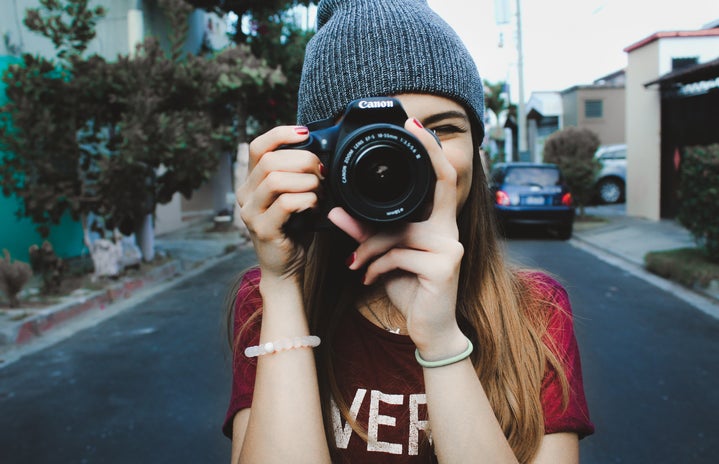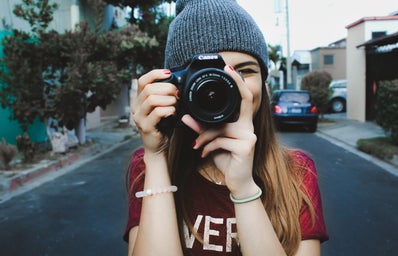Recently, Instagram announced they will be banning filters that resemble cosmetic surgery filters. Instagram began adding face filters in 2017; however, these filters differ from the filters Instagram users are using now. What once used to be innocent, cute animal ears, floating math equations, glasses, crowns and hearts have now turned into filters that enhance your facial features.
Courtesy: The Insider
In the last couple of months, Instagram’s effect gallery has been an excessive amount of face filters that make you look like an influencer. This means that these filters offer an augmented reality picture of what you’d look like with flawless skin, exaggerated pouty lips, a narrow nose, and sharp, elevated cheekbones that most influencers with millions of followers tend to have.
Courtesy: The Insider
The “fix me” filter pictured above mimics the markings a plastic surgeon makes before injections. The ones annotated here include an eyebrow lift, a nose job and cheek and forehead fillers. After backlash and numerous researchers proving the effects that filters can have on mental health and self-esteem, Instagram has announced they are removing these filters. Spark AR, the company behind Instagram’s filters, made the announcement on Facebook, “Update on Well-Being Policies”. The company said that they are removing these filters for moral reasons, explaining that they want their filters to be a positive experience for everyone. Despite releasing this statement in good faith, people have mixed reviews. Even though their decision could possibly help many, is the damage already done?
Courtesy: Newstatesman
With western society’s current beauty standards resembling these filters with smooth skin, full lips and big eyes, these unrealistic beauty standards have already started harmful consequences in real life. Constantly using these filters allows people to forget what they actually look like, which can cause body dysmorphia. Many people have not taken or posted a photo without a filter in years. It should also be noted that the use of these filters and those who fit these western beauty standards have an abundance of followers and likes. The overuse of facial filters also stems from wanting validation and with the rise of influencers, many young girls want to look like the women they see on Instagram.
Although some filters can be so subtle that you don’t see the difference until you’re not using it. Girls used to compare themselves to the models they see in magazines, then to the influencers on Instagram, and now they are comparing themselves to themselves. These filters can bring out ‘flaws’ you never noticed, which leads young girls, even as young as 13, thinking of ways they could look better. In fact, many young people are taking filtered photos of themselves to plastic surgeons. Dr. Stafford Broumand, a plastic surgeon in New York, explains that people come into his office with very specific requests. Sometimes people want more fullness in the middle part of their lip and others want a “hand lift” to take the perfect engagement ring photo. In 2017, there were more than 200,000 cosmetic procedures performed on patients aged 13 to 19 and social media continues to be the primary factor. It’s important that Instagram feels ethically responsible and decided to ban these filters, but with the ever-changing and detrimental effects of beauty standards on social media, it’s safe to say they maybe a little too late.
Want to see more HCFSU? Be sure to like us on Facebook and follow us on Instagram, Twitter and Pinterest!



